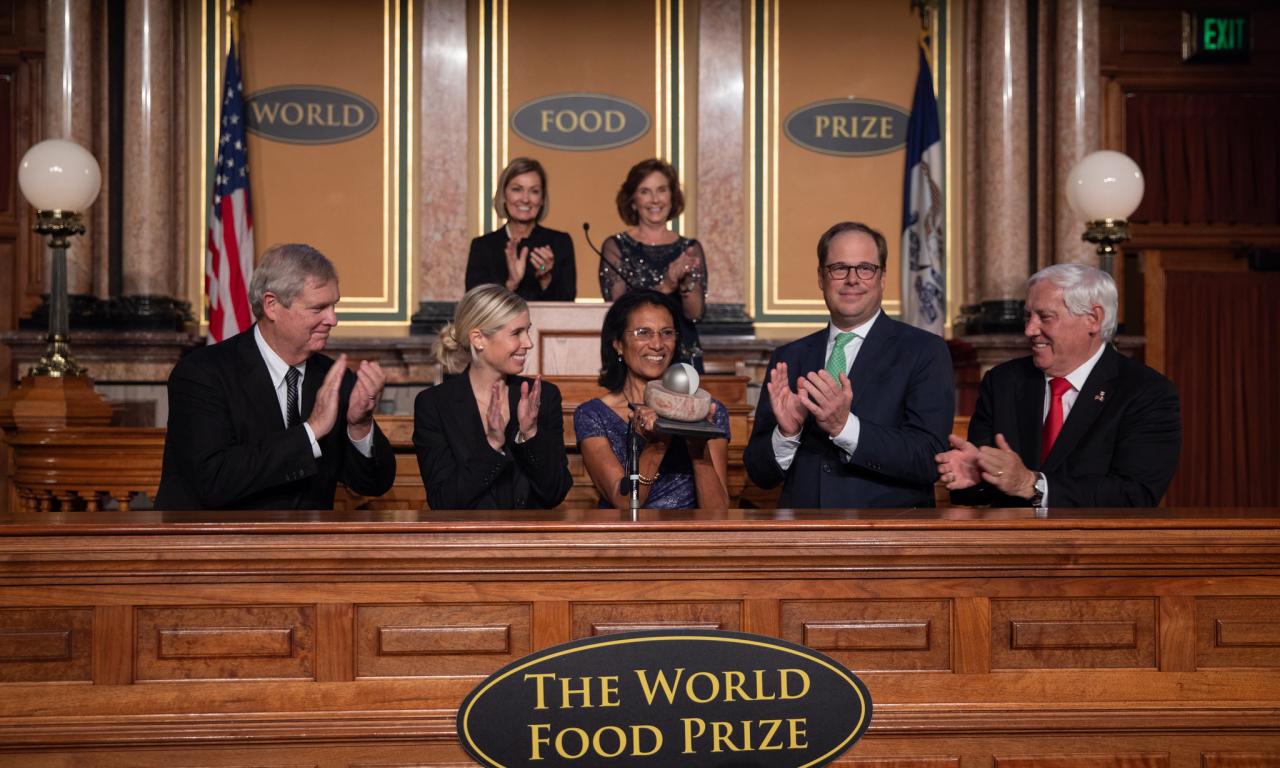
WorldFish scientist Shakuntala Thilsted receives award for her influential research on nutrition, fish and aquatic food systems
Shakuntala Haraksingh Thilsted, Global Lead for Nutrition and Public Health at WorldFish, received the 2021 World Food Prize for her groundbreaking research, critical insights and landmark innovations in developing nutrition-sensitive approaches to aquatic food systems, including fisheries and aquaculture, and integrated food production from land and water.
“Thilsted is the seventh woman to be awarded the World Food Prize and the first woman of Asian heritage. She is at the helm of some of our key action areas for global progress in the UN Decade of Action. She continues to stand at the forefront of innovation, pushing the boundaries of nutrition-sensitive food systems, truly changing the conversation from not just feeding our populations, to nourishing them,” shared World Food Prize Foundation President Barbara Stinson.
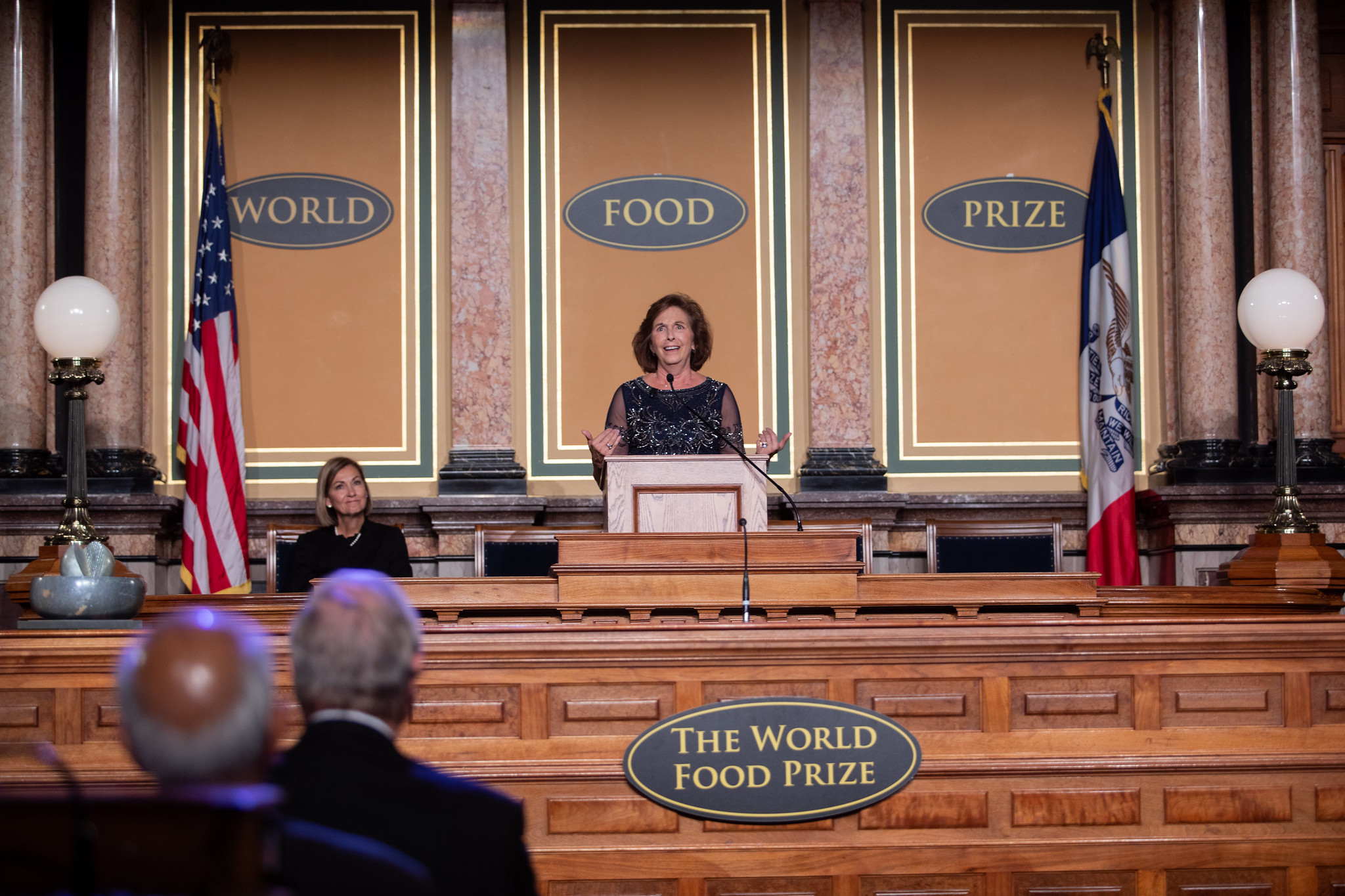
Often referred to as the ‘Nobel Prize for Food and Agriculture’, the World Food Prize is the most prominent global award recognizing an individual who has enhanced human development and confronted global hunger through improving the quality, quantity and availability of food for all.
Thilsted was the first to examine the nutritional composition of small indigenous fish species commonly found and consumed in Bangladesh and Cambodia. Her research demonstrated that the high levels of multiple essential micronutrients and fatty acids in these affordable and locally available foods offered life-changing benefits for children's cognitive development in their first 1000 days of life and the nutrition and health of their mothers.
From this breakthrough, Thilsted went on to develop nutrition-sensitive approaches and innovations to food production from land and water that have improved the diets, nutrition and health of millions of vulnerable women, men and children living in low- and middle-income countries across Asia, Africa and the Pacific.
"As a scientist, I feel this award is an important recognition of the essential but often overlooked role of aquatic foods and aquatic food systems in agricultural research for development. This award is a major acknowledgment of the urgent need to prioritize aquatic foods in nutrition policies and program interventions at national and global levels,” explained Thilsted on the significance of receiving the award.
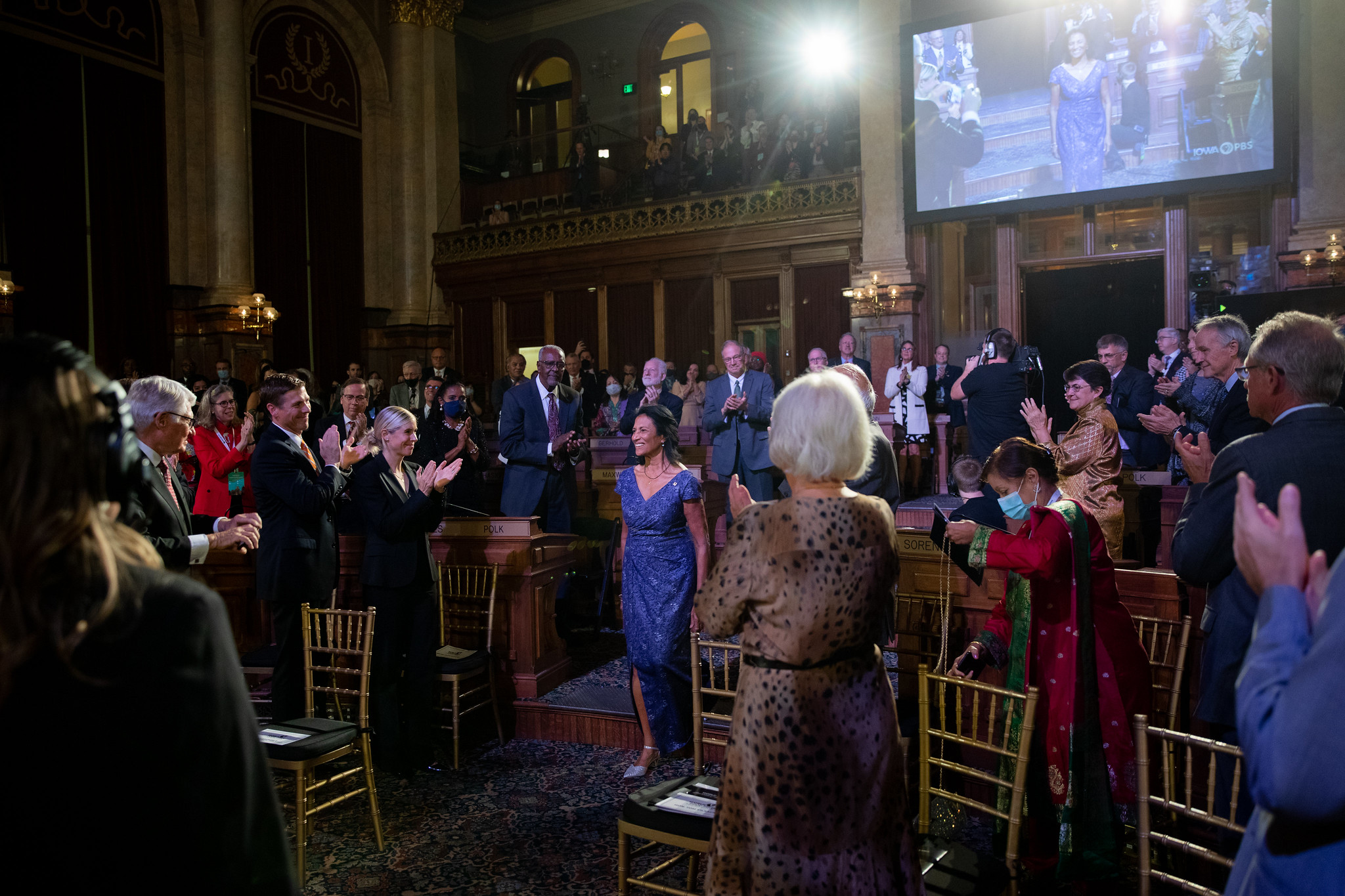
Hundreds of the world’s top agricultural leaders, professionals and experts gathered at the Iowa State Capitol to witness the 2021 World Food Prize Laureate Award Ceremony, which is part of the 2021 Norman E. Borlaug International Dialogue: Gaining Momentum – Food Systems Transformation in the Decade of Action and featured remarks from Iowa Governor Kim Reynolds, World Food Prize Foundation President Barbara Stinson and Thilsted.
Distinguished guests at the ceremony were United States Secretary of Agriculture Thomas Vilsack and Mexican Secretary of Agriculture and Rural Development Víctor Manuel Villalobos Arámbula.
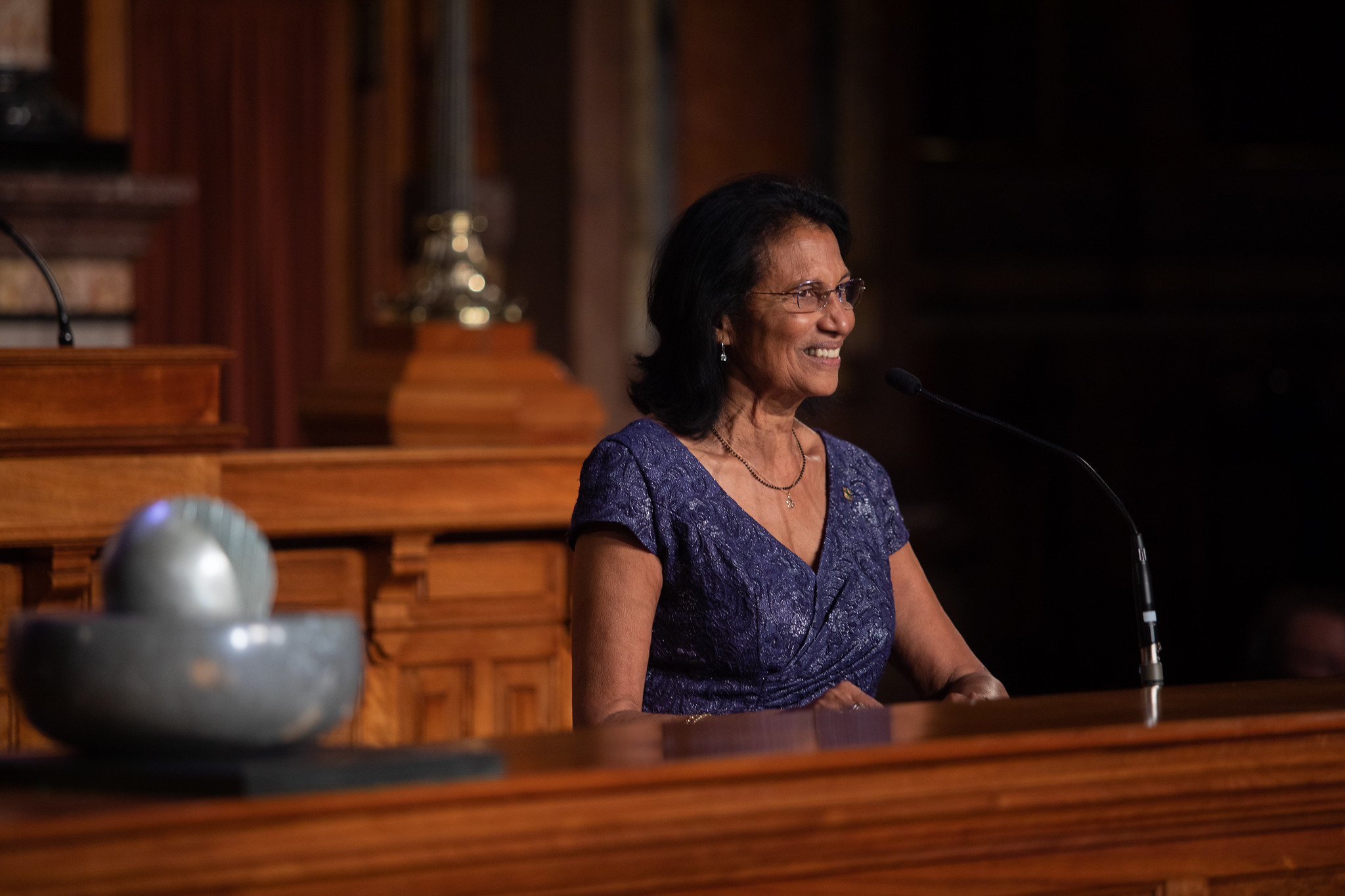
“My work is just the beginning for us to understand and make full use of the potential of diverse aquatic food to transform food, land and water systems so that we can nourish all peoples and our planet. I call on young researchers and students to be inspired by my work and take it to new heights,” rallied Thilsted.
A true food systems thinker, the impact of Thilsted's research crosses over different disciplines and sectors. She is credited with developing the pond polyculture system, a cost-effective and environmentally sustainable way of farming small and large fish species together in homestead ponds, water bodies and rice fields. This innovation, which helped to significantly increase the quality, diversity and quantity of available food, prompted a large-scale shift towards aquaculture production in Bangladesh. In addition, it led the Government of Bangladesh to recognize the pond polyculture system as a critical innovation for meeting national targets to beat hunger, malnutrition, gender inequality and poverty.
“This is a much-deserved award for a world-class food systems thinker, who challenges us to think differently and critically about the interconnected nature of different food production systems in land and water, about the nutritional value of fish and the rich diversity of aquatic foods, about the many opportunities aquatic foods represent as the new frontier for improving nutrition and public health, as well as the health and sustainability of our planet, and about why aquatic food systems have been an overlooked part of global food systems in terms of both research and investment,” said WorldFish Director General and CGIAR Senior Director of Aquatic Food Systems Dr. Gareth Johnstone.
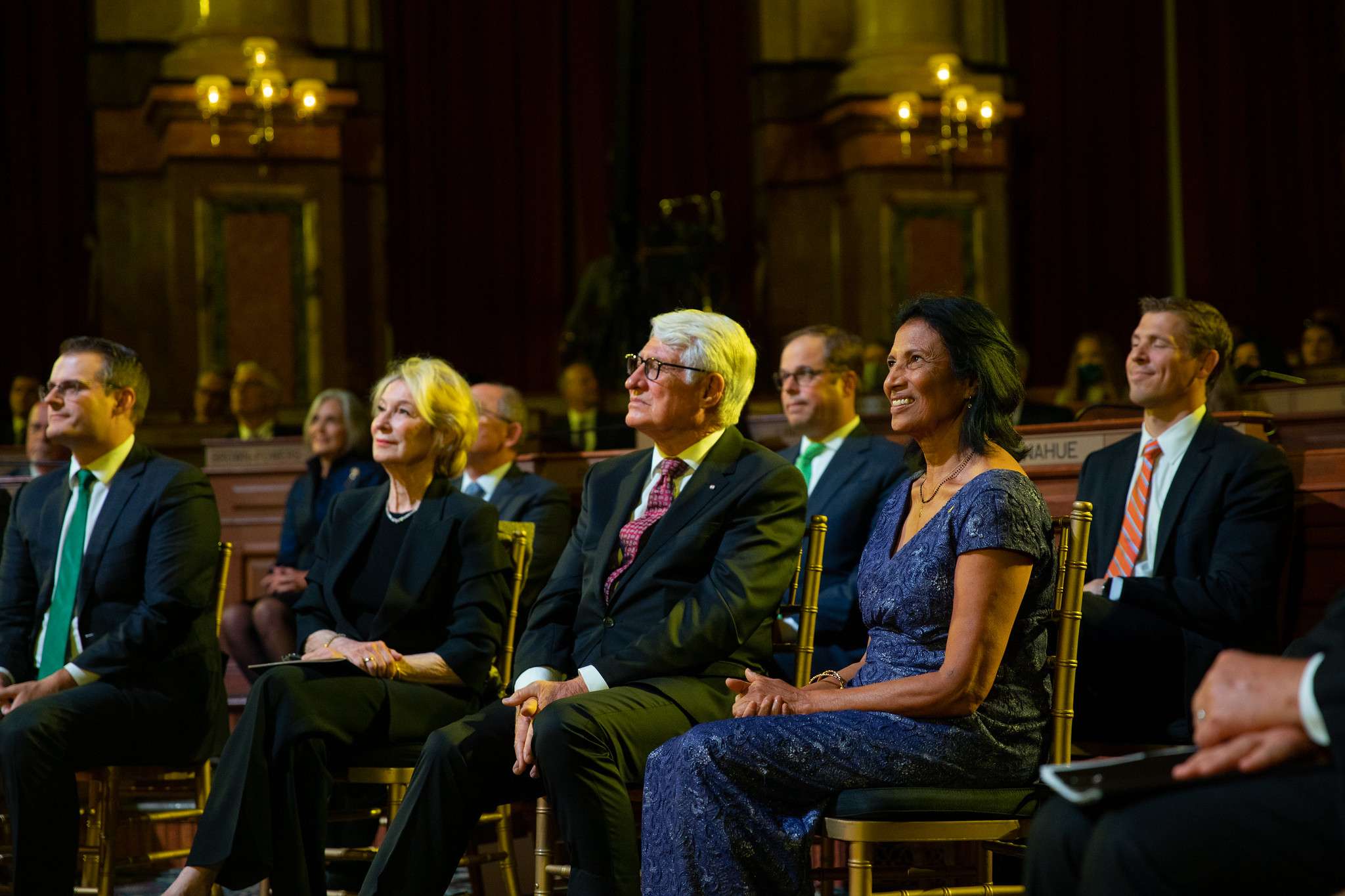
Working together with local communities and private sector actors, Thilsted guided the development of innovative, affordable and culturally acceptable fish-based products suitable for consumption by young children and lactating women. She discovered these products were nutrition powerhouses in their own right, and – when consumed with other foods – they also helped increase the absorption or bioavailability of other essential micronutrients found in vegetables and rice, such as iron and zinc.
Thilsted's influential research work on harvesting and processing in fish and aquatic food systems have enabled women in the sector to overcome gender barriers, to increase the visibility of their work in and contributions to the aquatic foods sector, to improve their access to affordable, nutritious fish and other foods, to increase incomes, and to create new business and economic opportunities. In addition, her work has guided the development of national campaigns and community programs to raise awareness and improve knowledge about nutrition and the critical inclusion of fish and aquatic foods in healthy and balanced diets for malnourished women and children.
“Congratulations to Shakuntala Thilsted, 2021 World Food Prize Laureate, along with deeply felt thanks, respect and appreciation for your life-long commitment to improved nutrition and human development outcomes through aquaculture and the demonstration of the potential of aquatic foods for improved diets, nourishment, livelihoods, equity and empowerment alike. You are a pioneer in food and nutrition systems transformation, an inspiration to us all at CGIAR,” said CGIAR Systems Board Chair Dr. Marco Ferroni.
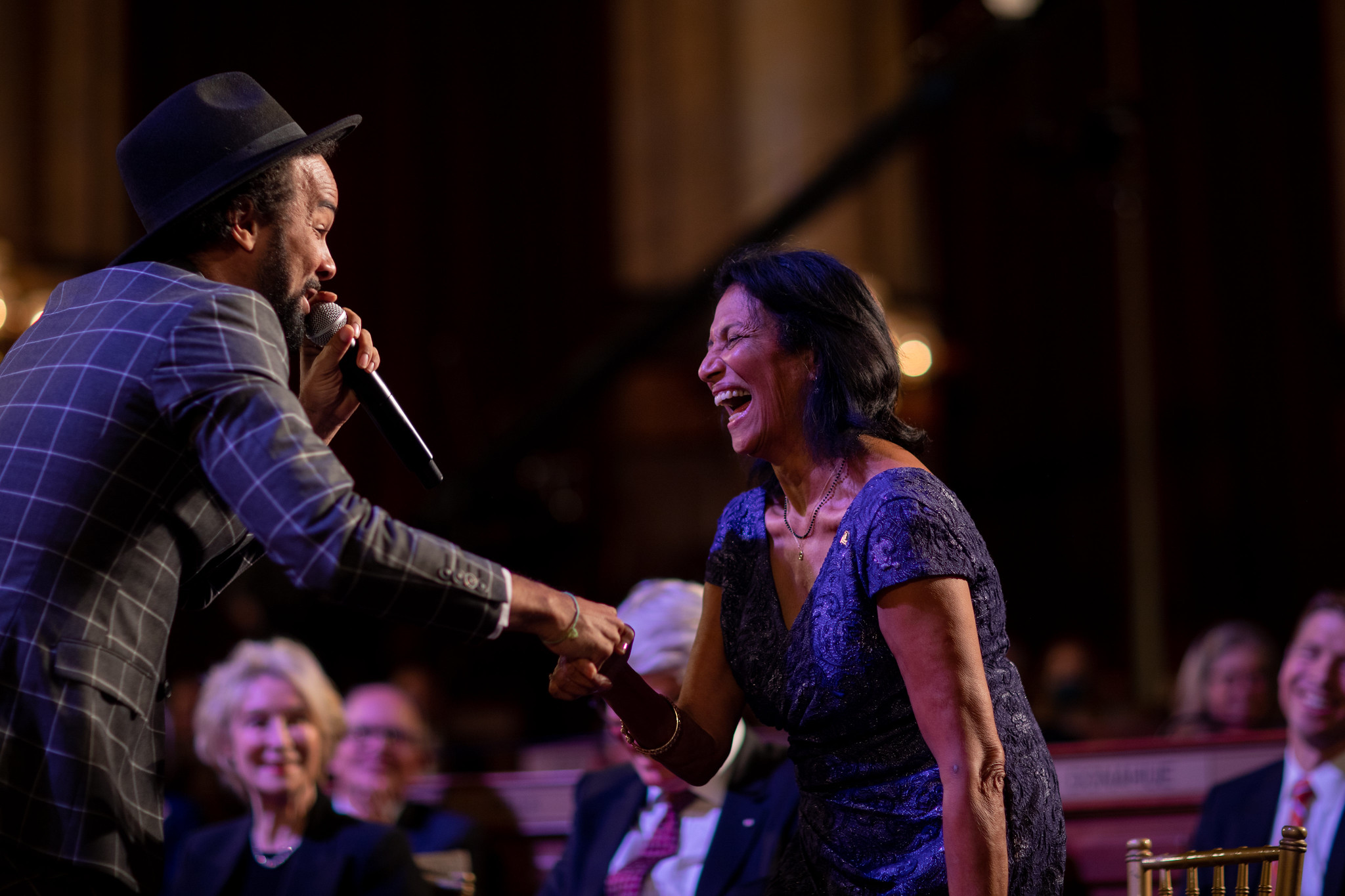
From the research field to the highest level of policy, Thilsted's scientific work and innovations is helping to shift global narratives of food production to higher food systems thinking, from the discourse on 'feeding' a growing global population to 'nourishing' billions of people, nations and the planet. Her nutrition-sensitive approaches to food production from land and water have put nutrition and public health outcomes at the forefront, with due consideration for equal access to and affordability of diverse nutritious foods for all, and environmental health and sustainability.
Since 2010, Thilsted has worked at WorldFish, an entity of CGIAR, the world's largest research and innovation network. As the Global Lead for Nutrition and Public Health, she shaped the formulation of the new disruptive 2030 WorldFish Research and Innovation Strategy: Aquatic Foods for Healthy People and Planet, which was launched at the end of 2020.
This year, Thilsted was also awarded the 2021 Arrell Global Food Innovation Award. She is a member of the Steering Committee of the High-Level Panel of Experts (HLPE) on Food Security and Nutrition, Vice Chair for Action Track 4: Advance Equitable Livelihoods of the UN Food Systems Summit 2021 and a U.N. Food Systems Champion.
Read the full text of her acceptance speech below:
Governor of Iowa,
United States Secretary of Agriculture,
President of World Food Prize Foundation,
Distinguished guests,
In 2015, I attended this ceremony as a guest of the Foundation.
I never thought that one day -- today -- I would be standing on this podium, as the 2021 World Food Prize Laureate.
I am truly honored to be awarded this prize and I am deeply humbled to be placed in such distinguished ranks of past laureates.
Mache bhate Bangali – fish and rice make a Bengali – an age-old proverb triggered a research idea and set me on a meaningful journey that has shaped my life and my career to date.
Since the announcement of the 2021 World Food Prize in May, I have been thrilled to see how this recognition has greatly magnified global attention to aquatic foods as a powerful game-changer in transforming food, land and water systems toward healthier and sustainable diets that work for people and the planet.
Thanks to this award, the world is finally waking up to the unmatched potential of aquatic foods to improve nutrition and public health in low- and middle-income countries.
The award has enabled to me to advocate more strongly about the need to shift away from the limiting discourse of 'feeding' a growing global population, towards that of 'nourishing' billions of people, nations and the planet.
For the past 50 years, the global agricultural research agenda, as well as policies on agriculture, food and nutrition security, and even food aid, have primarily focused on solutions related to staple crops and livestock.
This recognition of my work opens up new opportunities to amplify support and investments for research and innovation in aquatic food systems, and thus expand our thinking on solutions that benefit people, nature and the economy.
I will continue to call upon young researchers and students, especially young women from low- and middle-income countries, to build on my work forward and take it to new heights.
Looking ahead to the future, a sustainable food systems transformation will not be possible without due attention and investment given to aquatic food systems -- alongside crops and livestock.
I thank the very many people who have been on this journey with me, inspired me, mentored me, and contributed to my success.
I especially thank WorldFish’s Director General Dr Gareth Johnstone, and my colleagues at WorldFish and CGIAR for their support.
I would not be standing here today, without my family and friends.
I am especially grateful for the values and principles that my mother and my grandmother instilled in me while growing up in Trinidad and Tobago.
These values and principles – to make the best of one's ability to strive and excel, and at the same time, to help others – have guided my life and career.
For these precious gifts, I am forever grateful.
To my husband, Finn, thank you for being there for me – always – ever since we met some 50 years ago.
And finally, I wish to convey my heartfelt thanks to Barbara Stinson, President of World Food Prize Foundation, the Council of Advisers, the Selection Committee, the Ruan family and the Norman Borlaug family for awarding me the 2021 World Food Prize.
Thank you.
